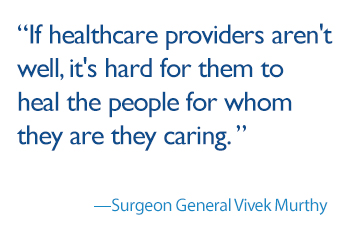I am no stranger to medical institutions. I’ve spent time in hospitals and clinics all throughout my life — shadowing physicians, working in the operating room as an administrative intern and now as a first-year medical student. However, while walking through the busy corridors of The Johns Hopkins Hospital, I feel distinctly different. Of course, this could be attributed to a variety of things, such as growing older and finally beginning a formal medical education, but the biggest difference for me comes from a short white coat with my name emblazoned on the left.
In our field, the white coat inevitably carries a strange and amazing sense of power and responsibility. Although we knew very little about medicine, since the day my peers and I received our white coats, we’ve been viewed differently in the hospital setting. While wearing the white coat, complete strangers confide in you, often sharing extremely personal stories, hopes and fears perhaps hidden even from immediate family. Suddenly, you are seen as a figure of authority and are, accordingly, faced with a sense of responsibility to provide the highest level of care for the people around you. The implications of this transformative power are incredible but also daunting.
Just over half a year ago, I was a senior in college and often joked with my friends about how we were “pretending” to be adults that were ready for the real world once graduation arrived. Now, I walk through The Johns Hopkins Hospital wearing an article of clothing that boldly proclaims something quite different — that I am an adult, ready to take care of the real world. The cognitive dissonance is glaring. I don’t feel any different on the inside than I did as the young college student only a few months earlier. How is it possible that I am suddenly responsible for taking care of others’ physical and emotional well-being when I am only just now learning how to take care of myself? I understand that as a new medical student, especially one coming directly from college without having taken any gap years, these sentiments are completely normal, but the nagging feeling that I am an imposter is still very real.
Regardless of these feelings, my medical training so far has been a privilege and incredibly rewarding. And now, several months in, I’m starting to learn that the solution to alleviating the dissonance lies in perspectives. It’s important to remember that medical training is a journey — one that will continue throughout my entire career — and that’s it’s OK to not always know exactly what I’m doing right now. Rather than letting imposter syndrome undermine my confidence, I can choose to see it as an opportunity to continuously challenge myself to learn and grow. Embracing my strengths and finding the courage to accept my weaknesses with confidence will, hopefully, help me work toward a satisfying and fulfilling career as a physician — even if some days, I still feel like just a kid in a white coat.
Read More »Kid in a White Coat


